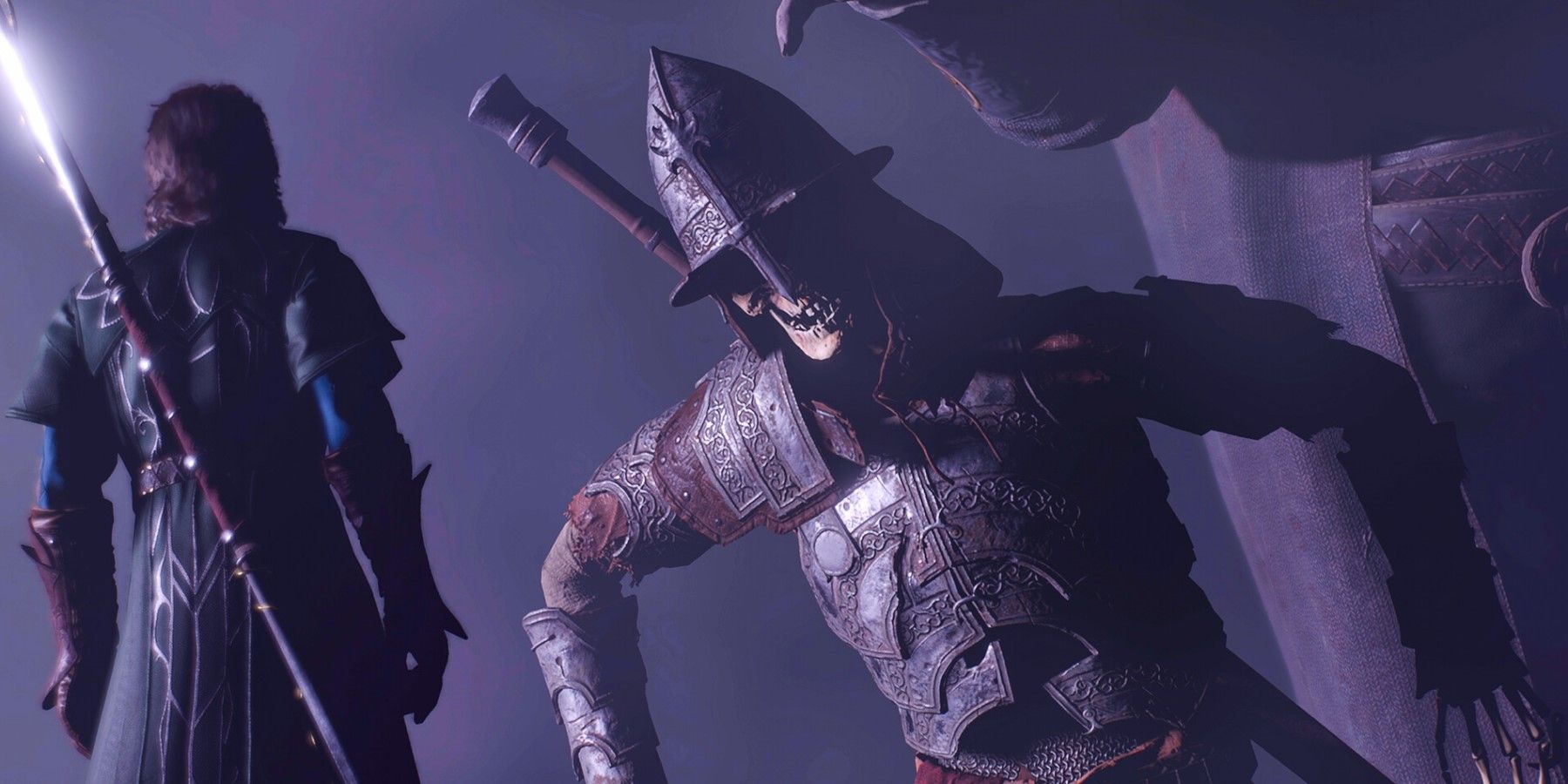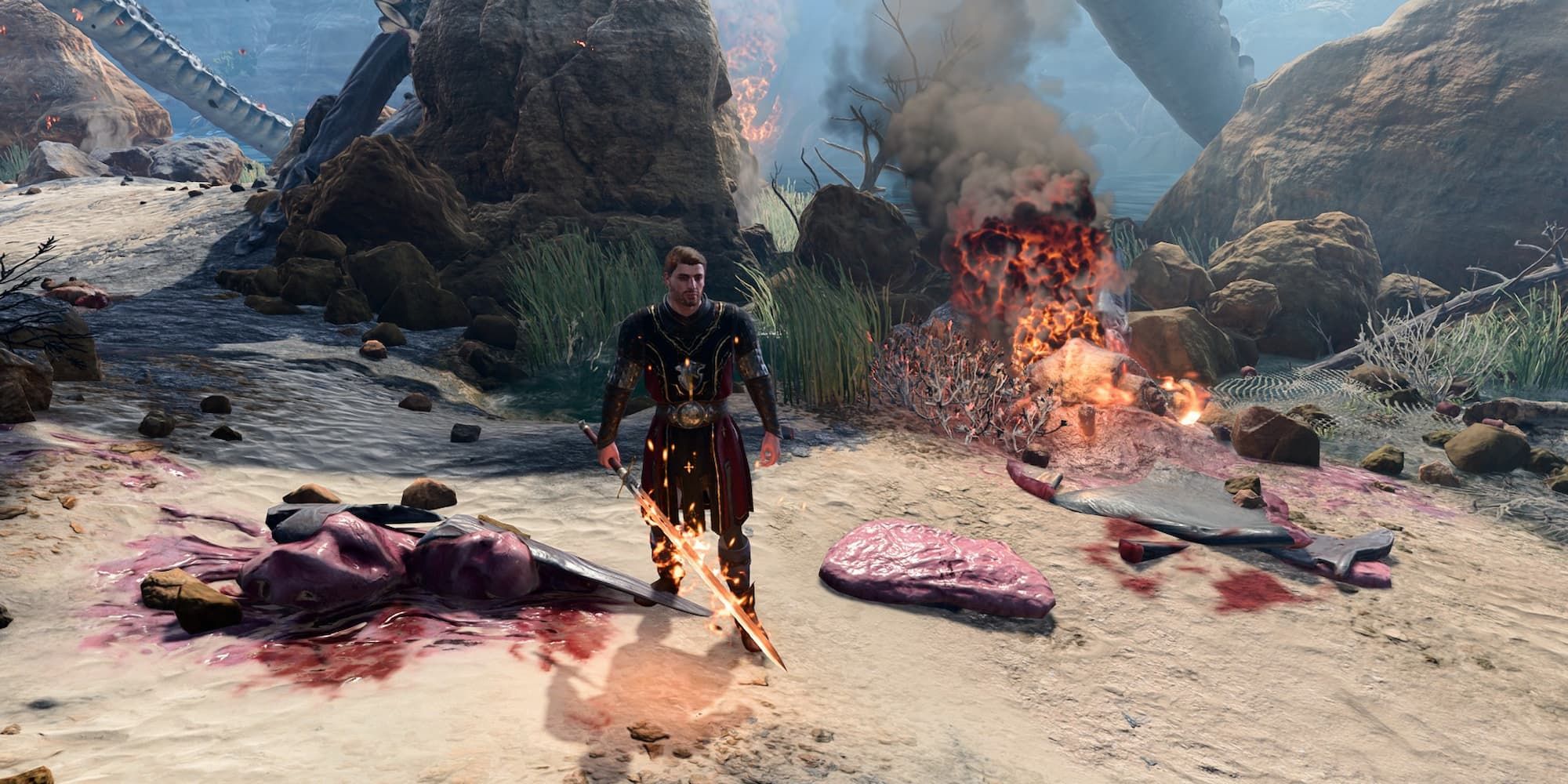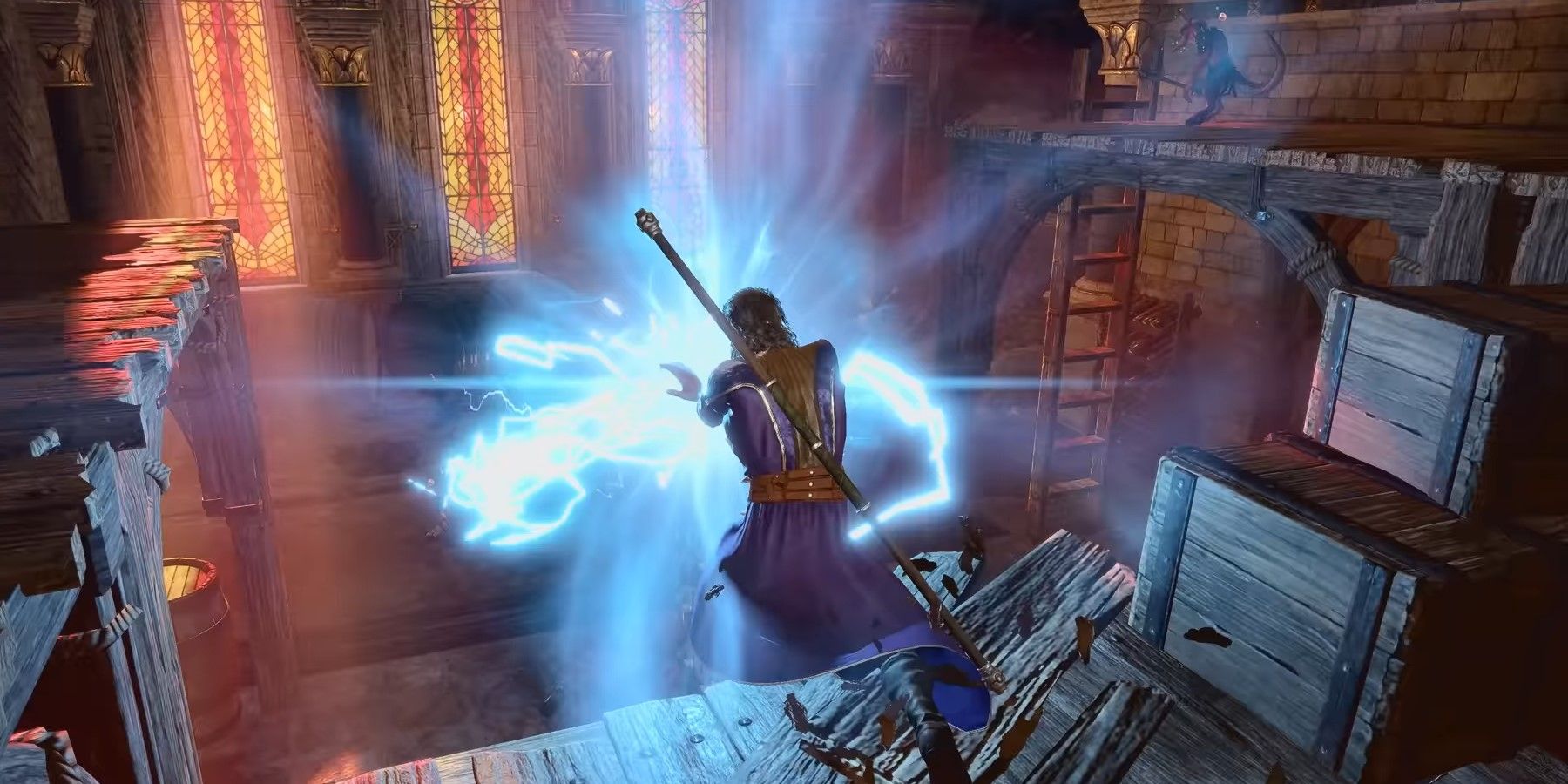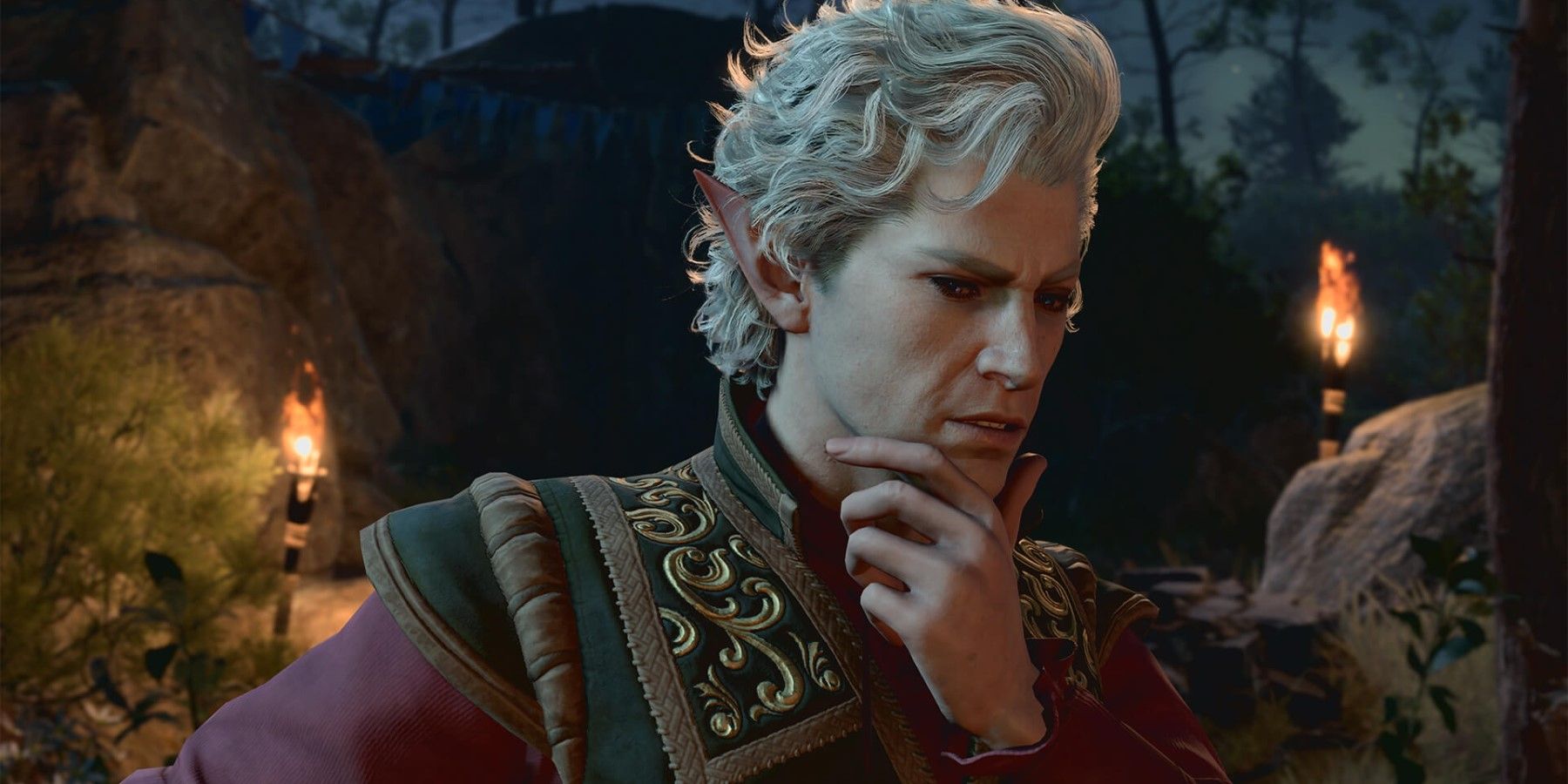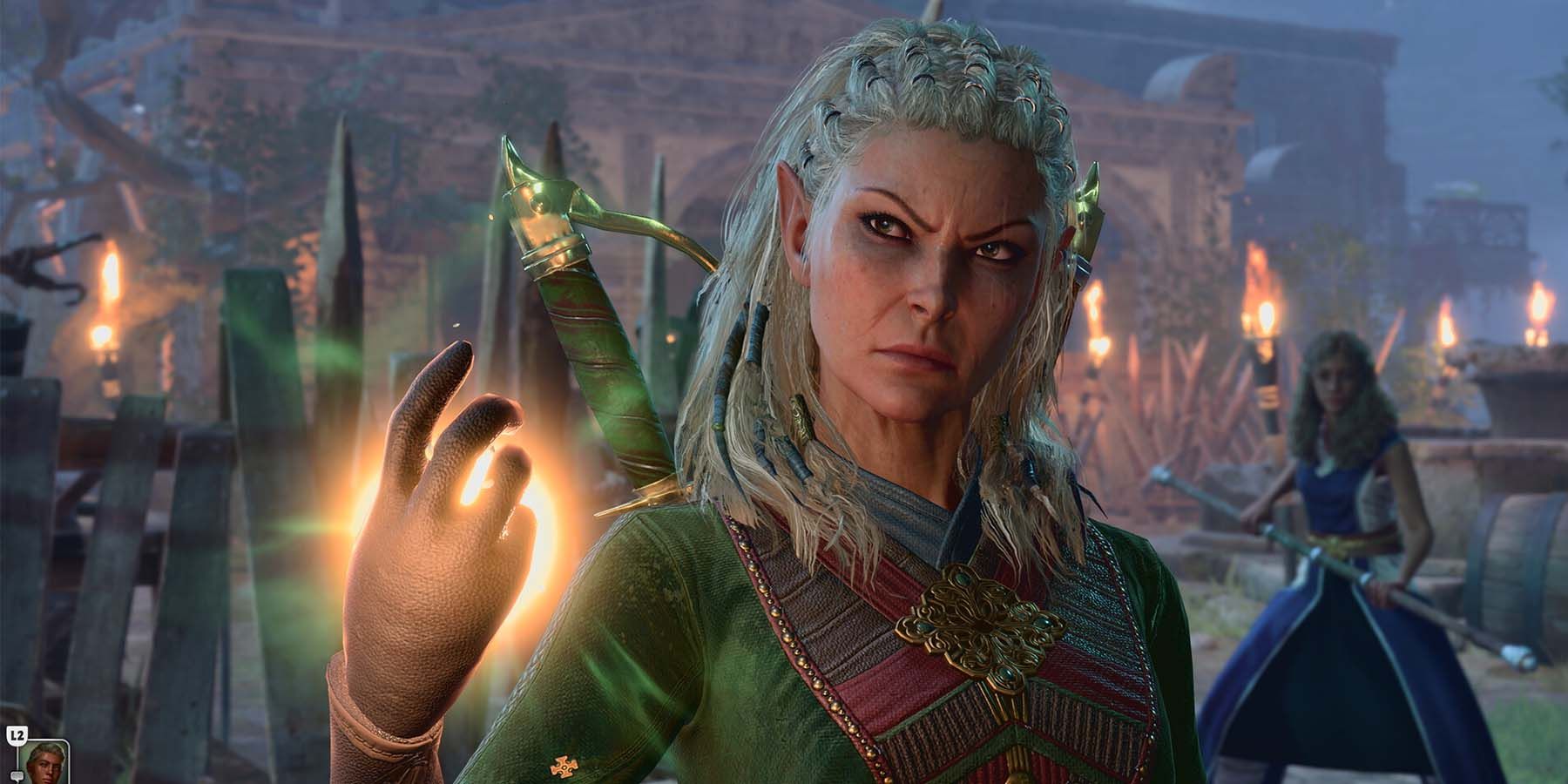Baldur's Gate 3 is built on the Dungeons & Dragons Fifth Edition system, adapted for CRPG by Belgium-based developers Larian Studios. As with any tabletop-to-video game adaption, Larian has had to add, remove, and tweak the Fifth Edition rules to fit Baldur's Gate 3.
Tabletop players will easily recognize the familiar races, classes, features, and monsters in Baldur's Gate 3. However, it's worth noting the more major changes that Baldur's Gate 3 makes to Fifth Edition, so that players who are relying on their tabletop knowledge don't find themselves missing out.
The Biggest Rule Changes in Baldur's Gate 3
The most impactful changes that Larian Studios has made to the Dungeons & Dragons Fifth Edition system can be found in the game's core rules and mechanics:
- The maximum level is 12
- Multiclassing ignores Ability Score requirements
- In Act 1, players will meet an NPC that can respec their characters
- HP gained when leveling up uses the average result of the class' Hit Die
- There is no cover system
- When a character makes a ranged attack at a target at least 10ft lower than them, they get a +2 bonus. If the target is at least 10ft higher than them, they instead take a -2 penalty
- Player characters with shared initiatives can act simultaneously
- There are no Tool or Language Proficiencies
- There are no Hit Dice, but Short Rests restore half of each character's HP
- The party can only Short Rest twice between each Long Rest
- Long Rests require Camp Supplies
- Each Weapon type has a set of Weapon Actions that can be used once per Short Rest
- Characters earn Inspiration based on their Background, and can only use it to reroll Ability Checks
- Shoving, Jumping, and drinking a Potion are all Bonus Actions
- Players cannot ready actions or grapple
- Characters can throw other characters that are at least one size smaller than them
- Bonus Action attacks, such as offhand attacks, do not require a main hand attack to be made first
The Biggest Spellcasting Changes in Baldur's Gate 3
Along with tweaks to individual spells, there have also been several major changes to the spellcasting system:
- Characters can cast both an Action Spell and a Bonus Action Spell on the same turn
- Clerics, Druids, and Wizards can change their prepared spells at any time outside of combat
- There is no Verbal, Somatic, and Material Components system, and spells can be cast with both hands full
- Some spells can be cast when Silenced or Hidden
- Longer duration spells now last until the next Long Rest
- Any character can cast a Spell Scroll, but only spellcasters get to add their Proficiency Bonus
- Ritual Casting spells takes no additional time
The Biggest Race Changes in Baldur's Gate 3
The 11 Races of Baldur's Gate 3 can all be played in Dungeons & Dragons Fifth Edition, though some have received fairly major changes:
- All races get +2 and +1 to two Ability Scores of their choice, rather than their racial bonuses
- All races with Darkvision have a reduced range to compensate for the smaller maps in Baldur's Gate 3. Races with Superior Darkvision, like the Drow, also have a reduced range, but it's still double basic Darkvision
- Elves and Drow don't have the ability to Trance instead of sleeping
- Drow are no longer weaker in sunlight
- Half-Elves don't get additional Skill Proficiencies
- High and Wood Half-Elves can't take Elf Weapon Training
- Halflings can't pass through other creatures' spaces
- There is no Variant Human option
- Forest Gnomes have permanent Speak with Animals
- Deep Gnomes' Advantage on Stealth checks doesn't require rocky terrain
The Biggest Class Changes in Baldur's Gate 3
The 12 Classes in Baldur's Gate 3 have all been tweaked extensively, but here's the most impactful changes for each class:
- The Barbarian's Rage and Reckless Attack features work with Finesse weapons and thrown weapons/objects
- The Bard's Song of Rest allows the party to take an additional Short Rest per Long Rest
- The Cleric's Turn Undead can no longer instantly kill weaker undead
- Druids can wear metal armor but can't alter their concentration spells while in Wild Shape form. Additionally, Wild Shape no longer has a fixed duration
- Monks receive their Ki feature at 1st level and gain more Ki points overall
- Paladins select their Oath at first level, and can lose their powers if they break the tenets of their Oath
- The Ranger's Favored Enemy and Natural Explorer features are greatly expanded with new and more powerful options
- Rogues no longer gain Thieves' Tools Proficiency as the Sleight of Hand skill is used to pick locks instead
- Sorcerers gain Metamagic at level 2 and get a third Metamagic option at level 3
- The Warlock's Pact of the Blade feature now allows characters to use their Charisma for attacks and damage with weapons
- The Wizard can instantly learn a spell scroll but still must pay a gold price per spell level
Baldur's Gate 3 is available now for PC. The PlayStation 5 version will be available on September 6th, 2023. A version for Xbox Series X/S is still in development.

